Our faculty members participate in conferences around the world, conduct groundbreaking research, and publish books and journal papers that contribute to their field and highlight their expertise. We feature those accomplishments and more in this section.
College of Education
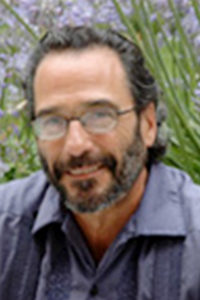
James S. Cantor, professor of teacher education, received the 2016 California Council on Teacher Education’s (CCTE) “Distinguished Teacher Educator Award” during the non-profit organization’s Fall 2016 Conference in San Diego. The council is dedicated to continual improvement of the pre- and in-service education of teachers.
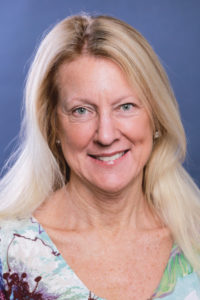
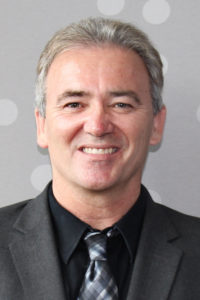 Anthony H. Normore, professor and chair of Graduate Education, and Antonia Issa Lahera, school leadership co-director, have edited the recently published book “Restorative Practice Meets Social Justice: Un-Silencing the Voices of “At-Promise” (Age Publishing, 2017), which is a collection of pragmatic urban school experiences that focus on restorative approaches situated in the context of social justice. The book was made possible by an Innovative School Leadership Institute grant from the U.S. Department of Education, Office of Innovation. Normore also co-edited “Racially and Ethnically Diverse Women Leading Education: A World View,” the 25th volume in the book series “Advances in Educational Administration.”
Anthony H. Normore, professor and chair of Graduate Education, and Antonia Issa Lahera, school leadership co-director, have edited the recently published book “Restorative Practice Meets Social Justice: Un-Silencing the Voices of “At-Promise” (Age Publishing, 2017), which is a collection of pragmatic urban school experiences that focus on restorative approaches situated in the context of social justice. The book was made possible by an Innovative School Leadership Institute grant from the U.S. Department of Education, Office of Innovation. Normore also co-edited “Racially and Ethnically Diverse Women Leading Education: A World View,” the 25th volume in the book series “Advances in Educational Administration.”
College of Arts and Humanities
Professor of humanities Lorna Fitzsimmons’ article “Love’s Intermedial Limbecke: A Stylistic Analysis of Donne’s ‘A Nocturnall upon S. Lucies Day, Being the Shortest Day,’” has been published in the journal English Studies, vol. 97.4 (2016). According to Fitzsimmons, John Donne’s poem is a “complex engagement with alchemy that many critics have found difficult to decode.” Her article examines the use of alchemy as a source domain at all levels of the poem.
College of Business Administration and Public Policy
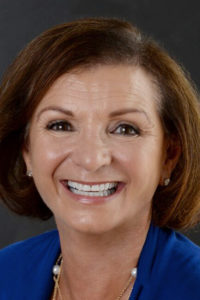 Vera Teller, lecturer, has published the book “Check It Off! Pave Your Way through College to Career,” a resource for high school students entering college that offers readers information regarding what students need to do in college to prepare themselves to seek employment and launch a career. The book also features a checklist of activities for each year of college to help guide students toward their career aspirations, and it answers the three most important questions: “What do I like to do?;” “What do I want to do?;” and, “What does the world need?”
Vera Teller, lecturer, has published the book “Check It Off! Pave Your Way through College to Career,” a resource for high school students entering college that offers readers information regarding what students need to do in college to prepare themselves to seek employment and launch a career. The book also features a checklist of activities for each year of college to help guide students toward their career aspirations, and it answers the three most important questions: “What do I like to do?;” “What do I want to do?;” and, “What does the world need?”
Natasa Christodoulidou 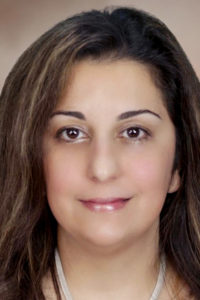 , associate professor of marketing and director of the Hospitality Technology Research Institute at CSUDH, was the lead author in a two-part series on the website Hospitality Technology. Part 1, “Hotel Communication Preferences Impact Guest Perception of Loyalty Programs,” was co-authored with Orie Berezan, assistant profess or management; Richard Malamud, professor of finance; Melissa St. James, associate professor of marketing and Meng Zhao, associate professor of marketing; and the second article, “Hotel Guests First Seek Information on Loyalty Programs with Websites, Employees,” was co-authored with Berezan. The articles examine how hotels’ communication preferences regarding their loyalty programs could be affecting the way guests perceive and use such programs.
, associate professor of marketing and director of the Hospitality Technology Research Institute at CSUDH, was the lead author in a two-part series on the website Hospitality Technology. Part 1, “Hotel Communication Preferences Impact Guest Perception of Loyalty Programs,” was co-authored with Orie Berezan, assistant profess or management; Richard Malamud, professor of finance; Melissa St. James, associate professor of marketing and Meng Zhao, associate professor of marketing; and the second article, “Hotel Guests First Seek Information on Loyalty Programs with Websites, Employees,” was co-authored with Berezan. The articles examine how hotels’ communication preferences regarding their loyalty programs could be affecting the way guests perceive and use such programs.
Recent quotes and/or interviews in the media from faculty
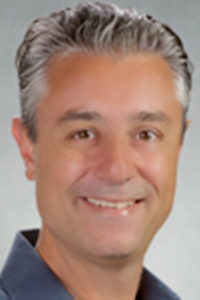 Giacomo Bono, assistant professor of psychology, was a guest on “The Roadhouse” show on WTIP North Shore Community Radio in Grand Marais, Minnesota, to discuss his research on gratitude in children, and gratitude curriculum he has developed for 4th- through 12th-grade classrooms. In 2015, Bono published the book “Making Grateful Kids: the Science of Building Character,” with his co-author Jeffrey Froh, an associate professor at Hofstra University. Bono’s research was also featured in the article “Are Your Kids Thankful?” on the website Health Day: News for Healthier Living.
Giacomo Bono, assistant professor of psychology, was a guest on “The Roadhouse” show on WTIP North Shore Community Radio in Grand Marais, Minnesota, to discuss his research on gratitude in children, and gratitude curriculum he has developed for 4th- through 12th-grade classrooms. In 2015, Bono published the book “Making Grateful Kids: the Science of Building Character,” with his co-author Jeffrey Froh, an associate professor at Hofstra University. Bono’s research was also featured in the article “Are Your Kids Thankful?” on the website Health Day: News for Healthier Living.
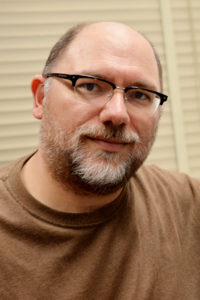 “The Republican Congress will be emboldened to alter the merit review criteria for NSF [the National Science Foundation], which will either minimize or forbid support for climate change research. I was recently on a panel at NSF this fall, and when talking to people there, it was clear that a lot of the plans for research support were ‘pending the outcome of the elections’ as funding is on a continuing resolution status. NSF might be gutted, or maybe it’ll flat line, it won’t get more money, and funding for some kind of work might be forbidden.” –Terry McGlynn, professor of biology, said in the article “Scientist’ Top Concerns in Trump’s America” on the website MOTHERBOARD.
“The Republican Congress will be emboldened to alter the merit review criteria for NSF [the National Science Foundation], which will either minimize or forbid support for climate change research. I was recently on a panel at NSF this fall, and when talking to people there, it was clear that a lot of the plans for research support were ‘pending the outcome of the elections’ as funding is on a continuing resolution status. NSF might be gutted, or maybe it’ll flat line, it won’t get more money, and funding for some kind of work might be forbidden.” –Terry McGlynn, professor of biology, said in the article “Scientist’ Top Concerns in Trump’s America” on the website MOTHERBOARD.